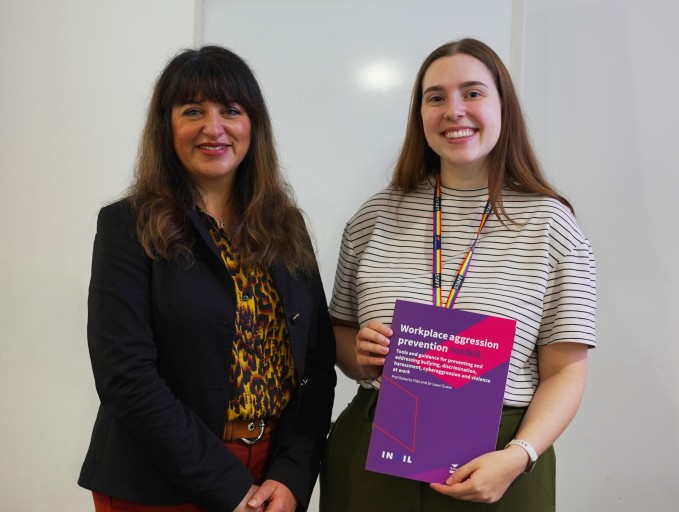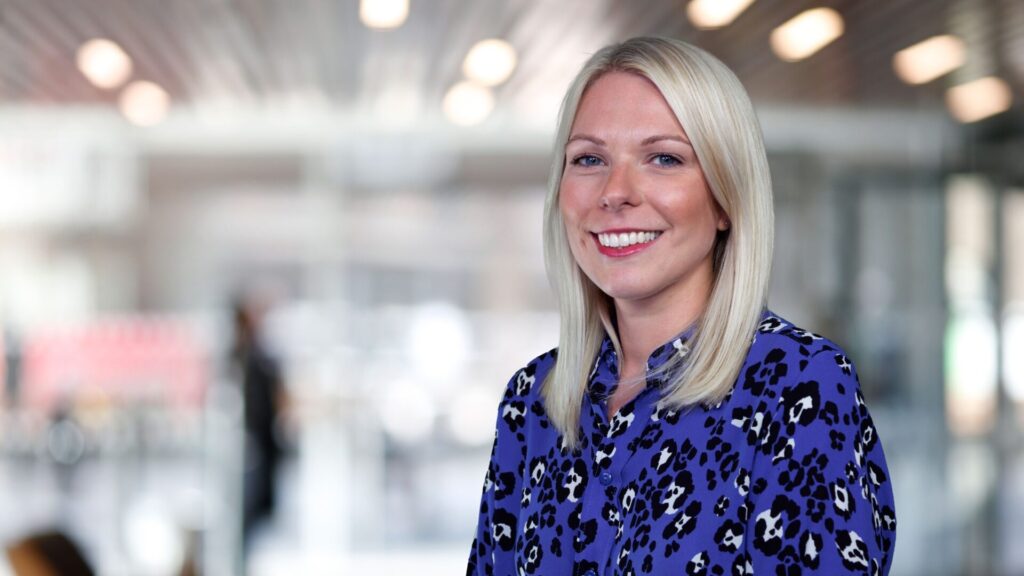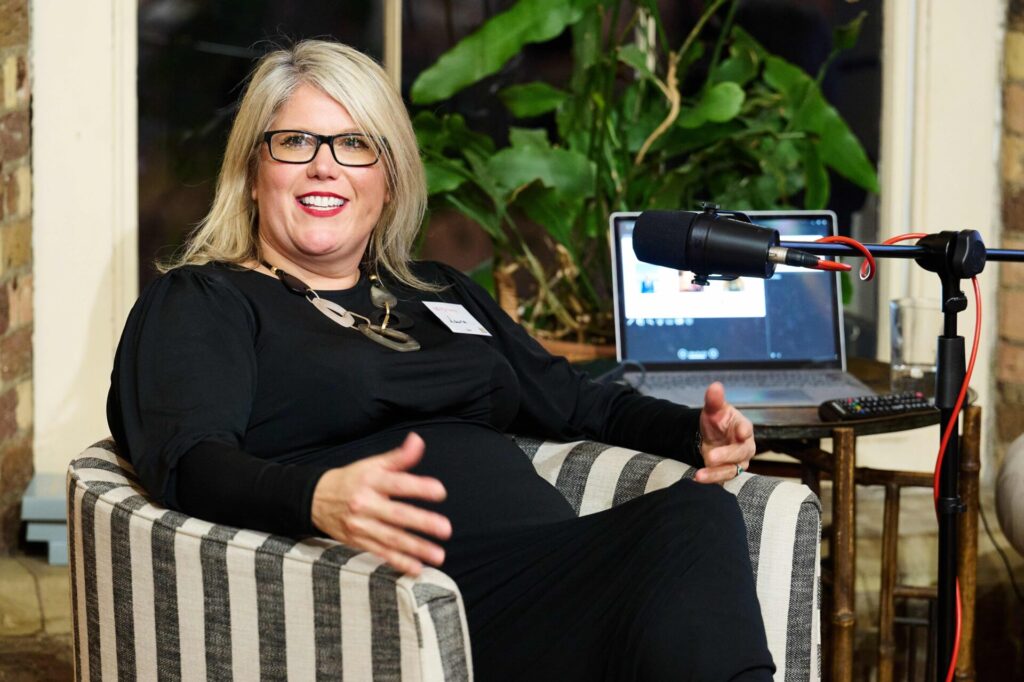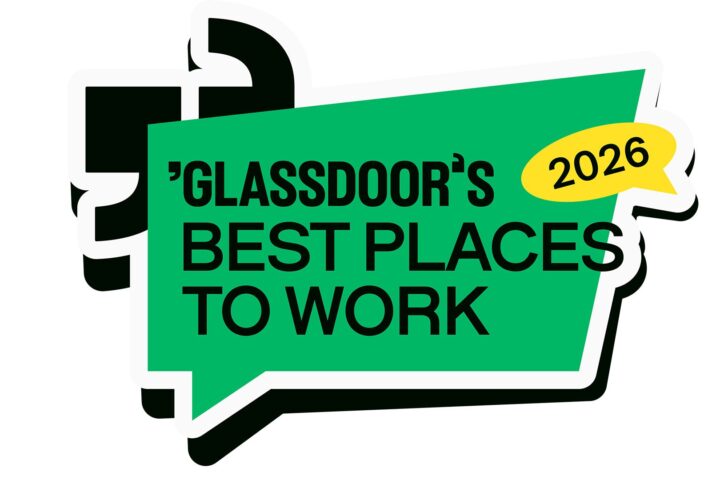Aston Business School has launched a toolkit and dashboard to help employers and HR teams prevent aggression in the workplace.
Professor Roberta Fida (pictured, left), head of the leadership and management department, led the research with Dr Lowri Evans (pictured, right).
The resources were launched at a business breakfast for local employers at Conference Aston in Birmingham.
The toolkit is available online and in print.
It gives clear definitions of workplace aggression and step-by-step strategies for prevention.
These strategies are split into three levels: primary, secondary and tertiary.
The approach covers the perpetrator of aggression, the target, and the bystander, called the multi-actor prevention framework.
Primary prevention aims to stop aggression before it starts, including shaping workplace culture and expectations.
Secondary prevention focuses on stopping aggression early, with behavioural coaching and confidential reporting.
Tertiary prevention offers support after aggression has happened, like rehabilitation plans, counselling and help to repair reputational harm.
The dashboard helps organisations map current practices, spot gaps, and track progress.
The toolkit also uses case studies, including one on cyberbullying where an employee is targeted after a promotion.
Each case study asks practical and reflective questions for HR teams.
Councillor Rob Pocock, Cabinet Member for Transformation, Governance and HR at Birmingham City Council, introduced the toolkit and dashboard.
Pocock said: “I think this is a really excellent initiative and I’m really pleased to have been able to come and introduce the project.
“I think the issue of workplace aggression and bullying is a growing problem for this country and a growing problem for every employer.
“I think the toolkit that has been developed at Aston University will help organisations like the City Council deal with this problem. Many congratulations to all the researchers who’ve been involved.”
Fida said: “Workplace aggression is not inevitable. I was motivated to work on this project because of the real human cost of bullying and harassment, which damages people’s health and dignity at work.
“We strongly believe that with the right tools, organisations can move from fragmented, reactive responses to proactive, evidence-based prevention.
“I have dedicated my career to understanding how harm in organisations can be prevented and how wellbeing can be promoted, with much of my work focusing on how processes like moral disengagement allow harmful behaviours to become normalised.”
Fida added: “This project has been a wonderful opportunity to translate that research into practice.
“With the toolkit and dashboard, we want to give employers and policymakers the means to take concrete steps toward safer, healthier, and more inclusive workplaces where dignity is protected.”
Evans said: “The toolkit and dashboard are designed to make complex research accessible and practical.
“They give HR leaders and managers the tools to reflect on their current practices, identify gaps, and take action.
“We developed the toolkit and dashboard as part of our commitment to engaging with organisations, ensuring that academic research translates into meaningful impact in real-world contexts.”
Evans added: “By using these resources, organisations can build a culture where prevention is embedded in everyday practice rather than only reacting when harm has already occurred.”















